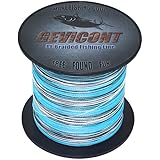Coughs are one of the most common ailments reported globally, with studies indicating that adults experience an average of 2-4 coughs per year, often seeking relief through various means, including traditional and home remedies. In fact, research from the National Center for Health Statistics suggests a significant portion of the population turns to non-prescription methods for symptom management. The intriguing video above appears to touch on a rather unconventional approach to addressing a cough, particularly in an outdoor or survival context: the concept of “soy sauce cough medicine.” While it certainly piques curiosity, let’s explore the science, the traditional wisdom, and more proven methods for managing coughs when you’re far from a pharmacy, especially in camping and survival scenarios.
Deconstructing the “Soy Sauce Cough Medicine” Concept
The idea of using soy sauce as a cough remedy might initially sound surprising. However, when we consider the ingredients of soy sauce, some parallels with traditional remedies begin to emerge. Primarily, soy sauce is rich in sodium, or salt. A time-honored method for soothing a sore throat, often associated with coughing, is gargling with salt water. The salt acts as an osmotic agent, drawing out fluid from inflamed tissues in the throat, which can reduce swelling and discomfort.
Additionally, soy sauce possesses a distinct umami flavor profile, which some anecdotal evidence suggests can be comforting or even distract from the irritation of a cough. It’s also worth noting that many traditional cough syrups contain a high sugar content, which can coat the throat and provide temporary relief. While soy sauce is savory, some varieties contain sugars as well, adding another layer to its potential, albeit limited, soothing properties. However, it is essential to emphasize that there is currently no robust scientific evidence or clinical studies that specifically endorse soy sauce as an effective cough medicine. Its perceived benefits are largely anecdotal and likely linked to its salt content and the potential for a placebo effect.
When Conventional Medicine Isn’t Available: The Outdoor Perspective
For those venturing into the great outdoors, whether camping, hiking, or in a survival situation, access to conventional over-the-counter cough medicines is often limited. This is precisely where curiosity about unconventional or readily available solutions, like the one hinted at in the video, comes into play. Preparedness is key, but sometimes even the best-laid plans go awry. Understanding basic cough relief strategies that rely on common items or natural elements can be a valuable asset.
A persistent cough in a wilderness setting can be more than just an annoyance; it can be debilitating, affecting sleep, energy levels, and overall morale, which are crucial for survival and enjoyment. Therefore, knowing how to manage symptoms effectively using what you have on hand becomes paramount. This doesn’t mean resorting to untested remedies, but rather focusing on principles that are broadly accepted for symptom relief.
Evidence-Based Home Remedies for Cough Relief
While the premise of soy sauce cough medicine is intriguing, it’s more beneficial to focus on widely recognized and, in some cases, scientifically supported home remedies that leverage common ingredients for cough relief. These are often excellent alternatives when traditional medications are out of reach.
Honey: A Sweet Solution Backed by Science
Perhaps the most well-known and scientifically supported natural cough remedy is honey. Numerous studies have indicated honey’s effectiveness in reducing cough frequency and severity, particularly in children. For instance, a 2012 study published in the journal Pediatrics found that honey was more effective than a placebo and even diphenhydramine (an antihistamine commonly found in cough syrups) in alleviating nocturnal cough and improving sleep quality in children with upper respiratory tract infections. The thick consistency of honey coats the throat, providing soothing relief, and its antimicrobial properties may also contribute to its efficacy.
To use honey for a cough, simply take a spoonful as needed. It can also be mixed into warm water with lemon for added vitamin C and soothing warmth.
Saltwater Gargle: Simple Yet Effective
As mentioned in the context of soy sauce, salt water is a powerful, yet simple, remedy for sore throats that often accompany coughs. A warm saltwater gargle can help reduce inflammation and clear mucus from the throat. Mix about half a teaspoon of salt into a glass of warm water, gargle for 30 seconds, and then spit it out. Repeat several times a day.
Hydration and Herbal Teas: Keeping Your Airways Clear
Staying well-hydrated is fundamental to managing a cough. Drinking plenty of fluids, especially warm ones, can help thin mucus, making it easier to expel. Herbal teas, such as ginger tea, peppermint tea, or chamomile tea, can be particularly beneficial. Ginger is known for its anti-inflammatory properties, while peppermint can act as a decongestant. The warmth of the tea itself is incredibly soothing to an irritated throat and airways. A review of traditional medicine practices published in the Journal of Ethnopharmacology highlighted ginger’s historical use in treating various ailments, including respiratory conditions.
Consider packing a small supply of your favorite herbal tea bags for camping trips, alongside a reliable method for boiling water. This simple step can provide significant comfort.
Steam Inhalation: Loosening Congestion
Inhaling steam can be remarkably effective for loosening phlegm and alleviating congestion that contributes to a cough. While a dedicated steamer might not be available in the wilderness, boiling water and carefully leaning over the steam (with a towel over your head to trap it, if possible) can provide relief. Adding a few drops of essential oils like eucalyptus or peppermint (if you carry them and are experienced in their use) can enhance the decongestant effect, though use caution and always ensure proper ventilation.
Cough Management in Wilderness & Survival Scenarios
Managing a cough when you’re away from civilization requires a proactive approach and an understanding of basic principles. These strategies not only aim to alleviate symptoms but also to prevent the cough from worsening or leading to more serious conditions.
Prioritizing Rest and Recovery
When battling a cough, especially in an outdoor setting, rest is paramount. Your body needs energy to fight off infection and repair tissues. Pushing yourself too hard can prolong the illness and deplete vital resources. Establishing a comfortable, dry, and warm sleeping area is critical. If possible, elevate your head slightly to help with post-nasal drip, a common trigger for coughs.
Maintaining Good Hygiene
Preventing the spread of germs is always important, but especially in a group camping or survival scenario. Coughing into your elbow, frequent hand washing (or using hand sanitizer if water is scarce), and avoiding sharing personal items can help keep others from falling ill. This is crucial for maintaining the health of the entire group.
Emergency Preparedness for Respiratory Issues
A comprehensive wilderness first-aid kit should include items beyond simple bandages. For respiratory issues and coughs, consider packing:
- Pain relievers/fever reducers (e.g., ibuprofen, acetaminophen)
- Antihistamines (for allergy-related coughs)
- Decongestants (if suitable for you)
- Throat lozenges or hard candies (to stimulate saliva and soothe the throat)
- Small bottle of honey (if practical)
- Thermometer (to monitor for fever)
- A supply of potable water or water purification tablets/filters
Understanding potential allergens in your camping environment can also help mitigate cough triggers. For instance, if you’re sensitive to pollen, try to choose campsites with less dense foliage during peak seasons.
When a Cough Requires More Than Home Remedies
While home remedies and simple strategies are effective for many common coughs, it’s crucial to recognize the signs that indicate a more serious condition requiring professional medical attention. This is particularly vital in survival situations where delayed care can have severe consequences. Data from emergency room visits consistently shows respiratory complaints as a leading cause, underscoring the importance of knowing when to seek help.
Be vigilant for these red flags:
- Difficulty Breathing or Shortness of Breath: This is a critical symptom that requires immediate attention.
- High Fever: A temperature of 102°F (39°C) or higher, especially if persistent.
- Coughing Up Blood: Any blood in your cough warrants urgent medical evaluation.
- Chest Pain: Sharp or persistent pain in the chest, particularly when breathing or coughing.
- Wheezing: A high-pitched whistling sound when breathing.
- Cough Lasting More Than a Few Weeks: A persistent cough, even if mild, should be checked by a doctor.
- Swelling in the Legs or Ankles: This could indicate underlying heart issues that a cough might exacerbate.
- Sudden Worsening of Symptoms: If a mild cough rapidly becomes severe.
In a true survival situation, identifying these symptoms means prioritizing evacuation or signalling for help if resources allow. Never underestimate the potential severity of a seemingly simple cough, especially when in remote locations without access to advanced medical care. While the idea of a ‘soy sauce cough medicine’ might capture attention, a well-informed approach to cough management, grounded in practical, proven methods and a clear understanding of when to seek professional help, remains the most vital tool in any outdoor enthusiast’s kit.











